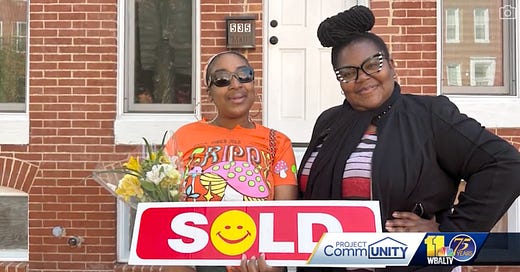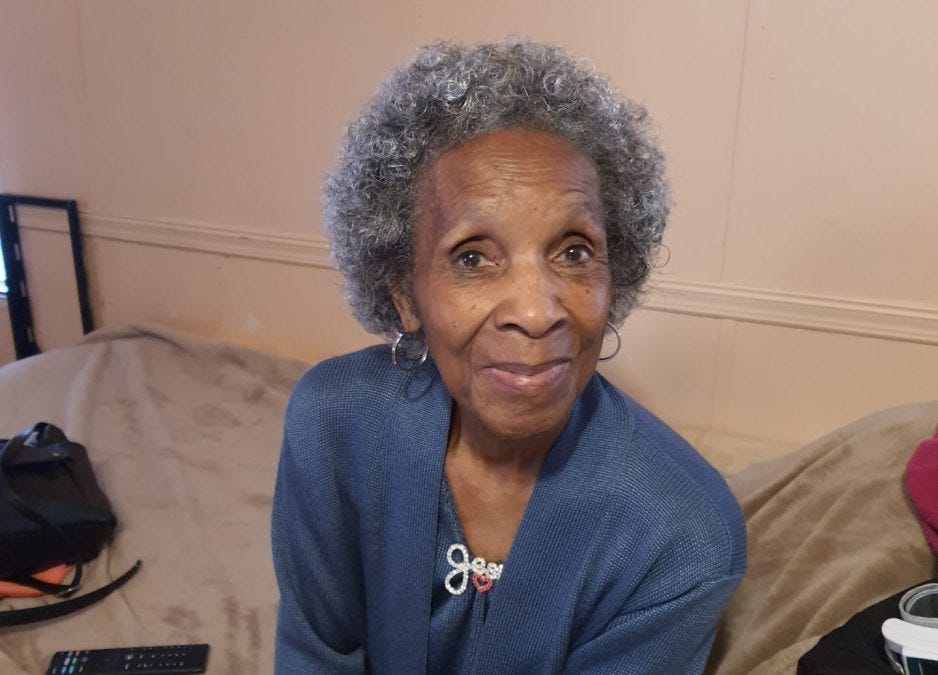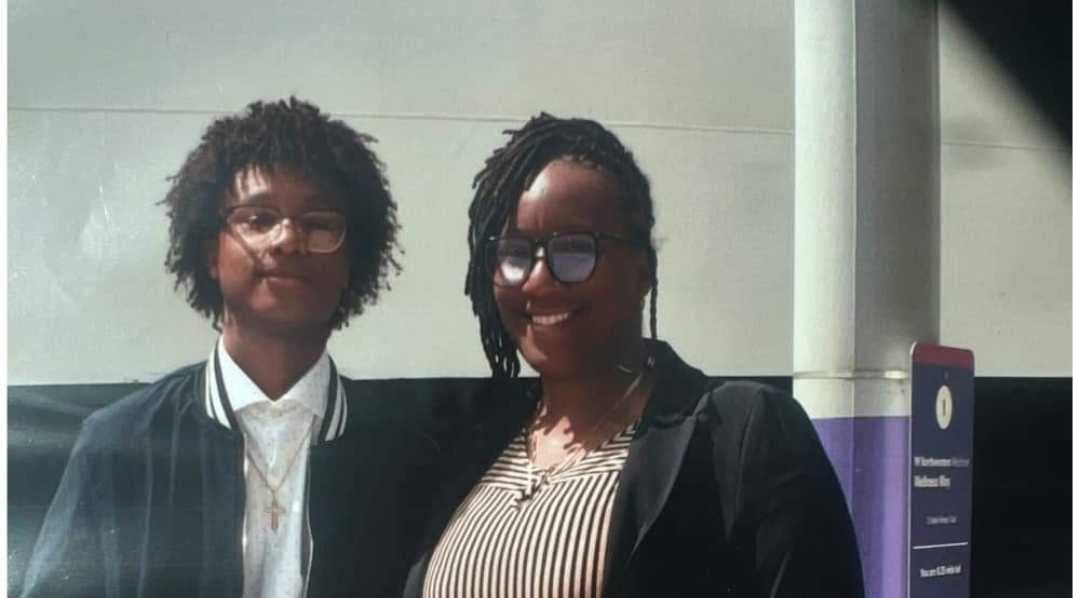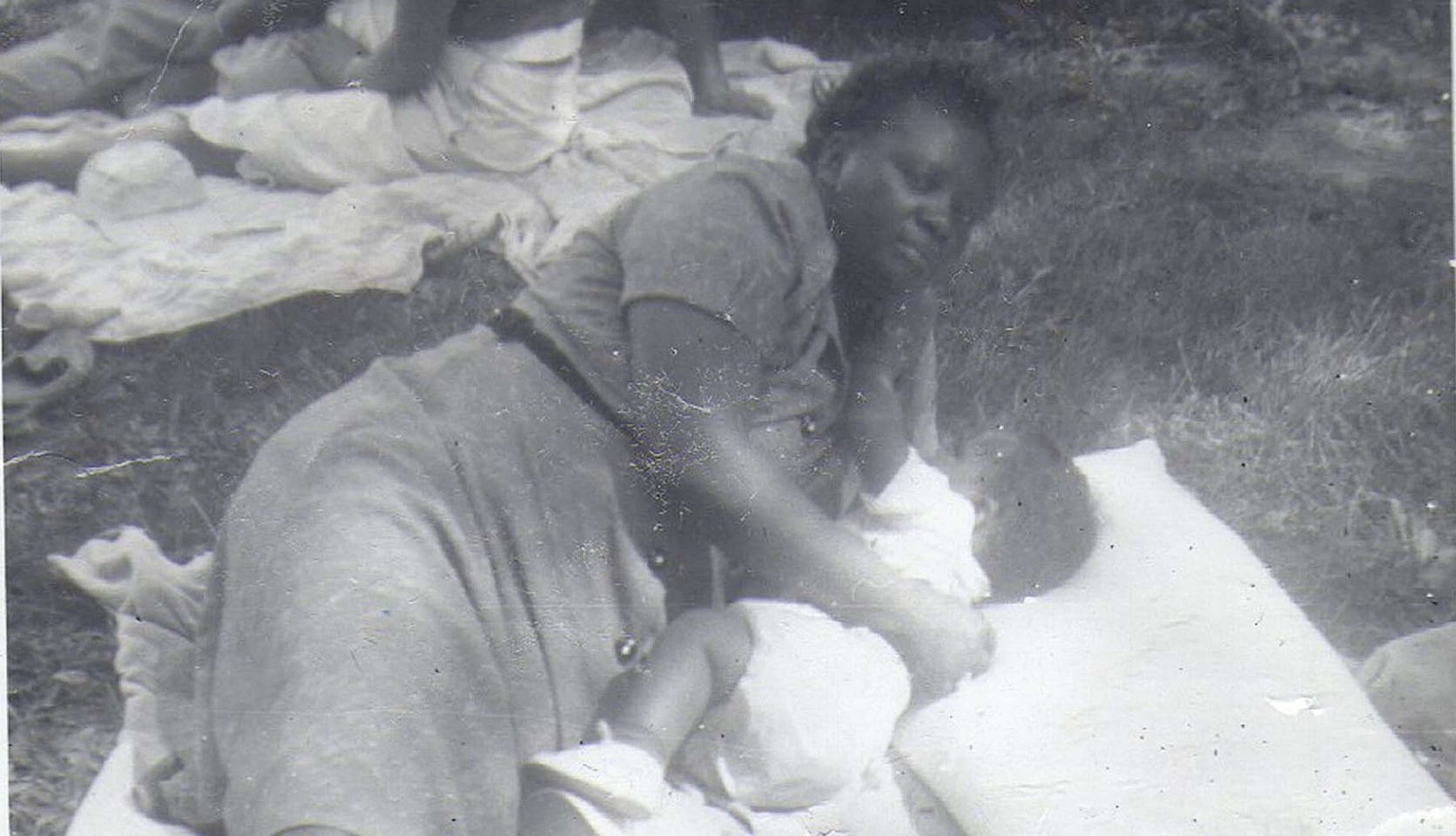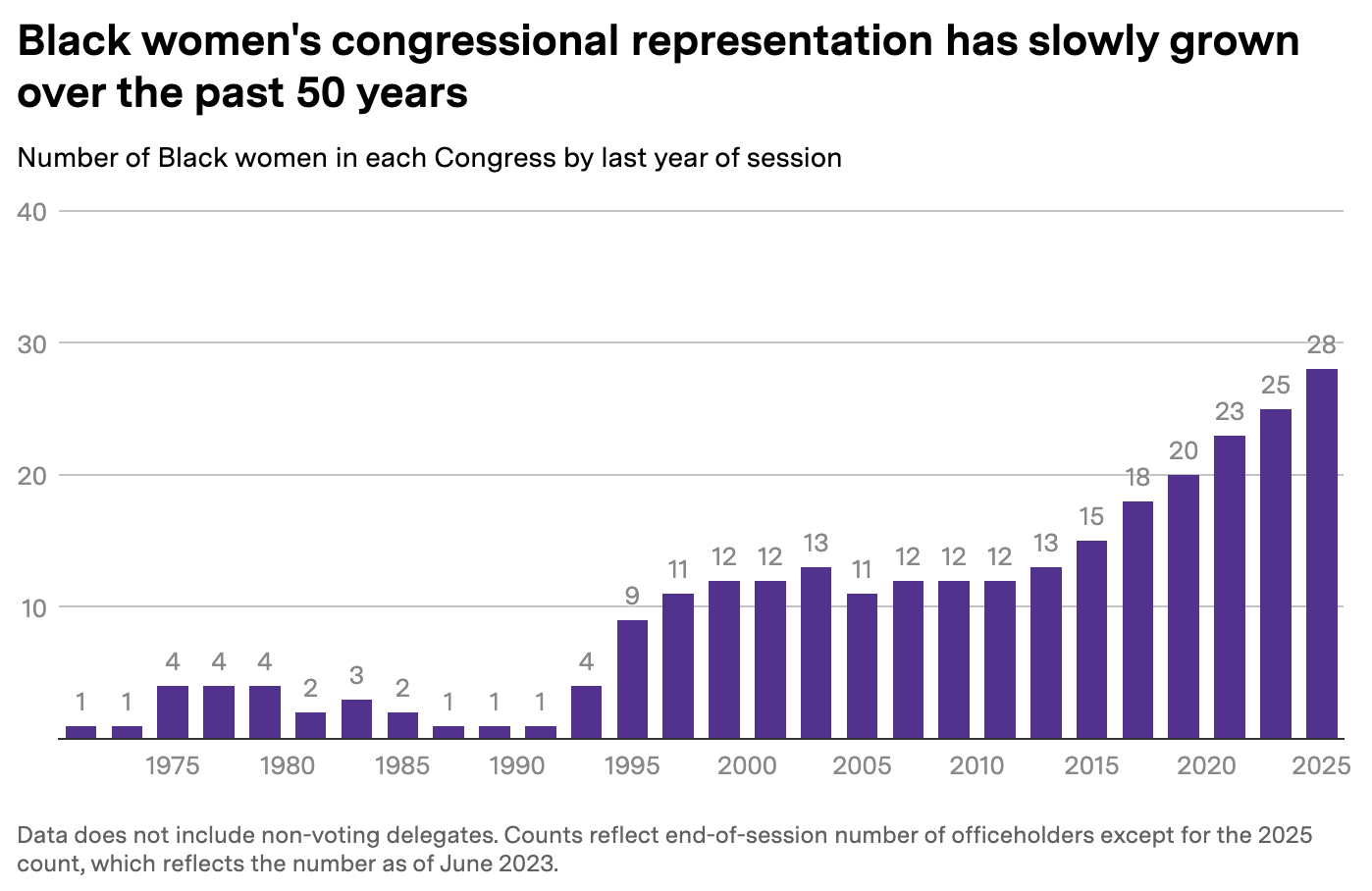DIY Black women homeownership, 93yo fights to keep her land, a neurosurgeon makes history
Plus, how racism may accelerate menopause among Black and brown women, how a young Oklahoman become known as "The Richest Black Girl in America," and more.
Hi there,
Welcome back to The Wakeful. This week’s roundup features a mix of stories across health, social justice, politics, science, finance, and more. I’ve received the most supportive and encouraging messages from you all about how you share this newsletter with family members, friends, colleagues, and beyond. Much appreciated! Thank you! Let’s keep it going with a like and share for this post and/or becoming a paid subscriber. (P.S. I’m working on a few freelance stories that center Black girls and women and can’t wait to share them here soon!)
—Patrice
This land has been in her family since the Civil War. Now, she's fighting to keep it.
What I’m Reading, Phil Lewis
“Josephine Wright was approached by the developer, Bailey Point Investment Group, in May, asking her to sell the property to make way for a 27-acre, 147-unit development on Hilton Head Island called Bailey’s Cove. Wright refused. ‘I wanted to leave a legacy for our family,’ she told me.
The construction had begun last year with no warning, according to Wright’s granddaughter, Charise Graves. ‘Unbeknownst to us, they just started tearing trees down, you know. Our house was shaking like it was an earthquake. They didn’t even have the decency to let us know that this was happening,’ Graves said in a press conference.
The developer sued after Wright refused them, alleging a shed, satellite dish, and Wright’s back porch encroaches on the land where they plan on developing Bailey’s Cove.”
Black Women Build Baltimore empowering women through home repair, ownership
WBALTV, Breana Ross
“What started as buying a few houses turned into transforming entire blocks and transforming lives. Halstead started Black Women Build Baltimore, recruited a group of Black women and started teaching them how to restore deteriorating homes.
‘We basically put it back together. It's anywhere from … we do floors, doors, cabinets, trim, tile, windows, fences, painting,’ Halstead said.
With the help of subcontractors, they've completed 13 homes and have 25 more in the pipeline on Etting, Laurens, Division and Sarah Ann streets. While women learn to work on the homes, they also learn how to work to build wealth.”
Graphic Video Shows Shreveport Police Beating Black Woman ‘Unconscious,’ Dragging Nearly Naked Body
NewsOne
“Graphic video footage posted to social media claims to show heavily armed police officers in Louisiana brutalizing a Black woman and then dragging her nearly naked body across a field. While confirmed details were immediately scarce, including when, where and why the incident occurred, it is very clear that at least one officer wearing a uniform with a Shreveport Police Department shoulder patch participated in the apparent brutality.
The footage was posted to TikTok on Tuesday by a user named twentyeightgrams28. The first of two videos from the incident showed the unidentified Black woman’s limp body being briefly dragged across a field by two uniformed officers as dozens of bystanders expressed their disapproval at the police response. They then let her fall to the ground to face the bystanders. One of the officers, who is white, is wielding an assault rifle as he turns toward the crowd.”
Are Black Women Allowed Self-Defense?
ESSENCE, Melissa Brown
“The June 18 cellphone footage of Carlisha Hood’s attack shows the realities many Black women victims suffer. Social media footage shows Jeremy Brown threatening Hood before punching her in the face and head. The assault continues until her son enters the store and shoots Brown, which initial videos circulating the internet conveniently did not show. Instead of recognizing her as a victim, the Chicago Police Department (CPD) charged Hood and her son with first-degree murder and delinquency of a minor.
In addition to these charges, initial reports suggested that Hood had told her son to get the gun and shoot Brown, leading social media users to chastise the mother for supposedly endangering her child. This portrayal of Hood’s experience egregiously overlooks her as a vulnerable individual deserving of safeguarding, instead unjustly labeling her as a wrongdoer deserving of confinement.”
Discrimination May Hasten Menopause in Black and Hispanic Women
Scientific American, Jyoti Madhusoodanan
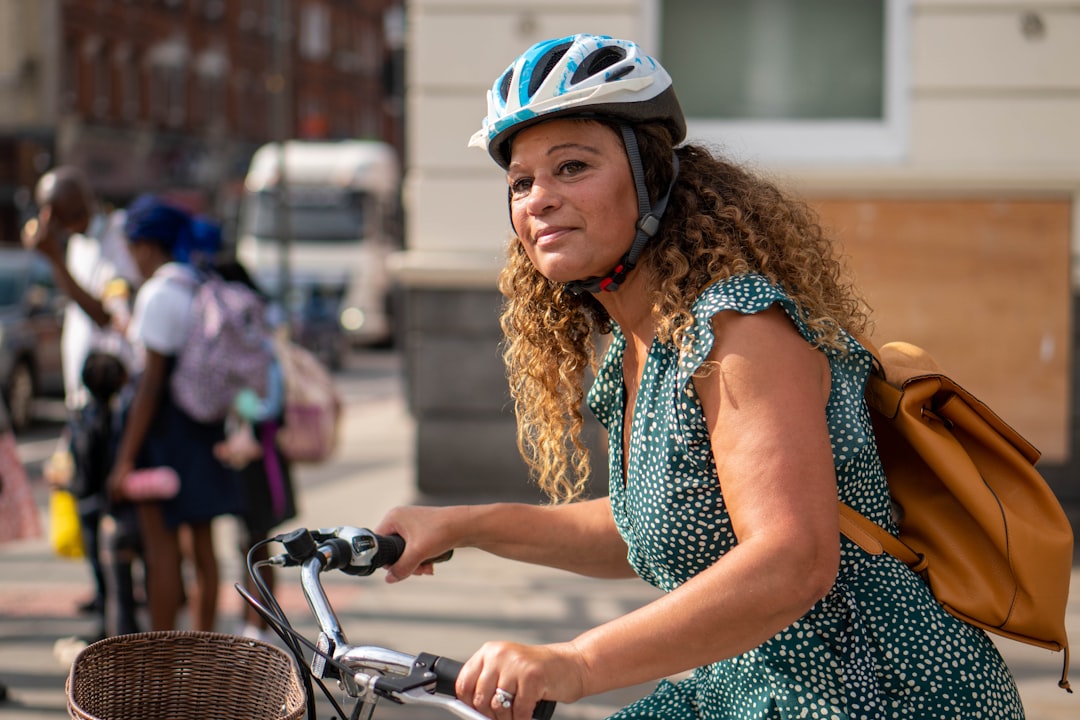
“One reason for the earlier onset of menopause among Black women is that they experience surgical menopause, which results from the removal of the ovaries and sometimes the uterus, roughly twice as often as white women, according to data from SWAN. This is in part because Black women have a higher prevalence of benign tumors known as uterine fibroids, says gynecologic oncologist Kemi Doll of the University of Washington, who was not involved with the new research. The study highlights the importance of considering women’s health beyond reproduction and pregnancy and the intricate ways that racism in broader society can bias the scientific process and results, Doll says.”
How did a young Oklahoman become known as "The Richest Black Girl in America"*?
KGOU, Rachel Hopkin
“Her name is Sarah Rector. That’s undisputed. So is fact that she was owner of a land allotment which became a huge source of oil. But much about Sarah is unknown and many of the accounts circulating about her contain errors. In fact, almost as soon as oil was found on her land, Sarah became the subject of baseless rumors. Then, as the decades passed, she faded from the public eye - so much so that even her own nieces only became aware of the extraordinary nature of her life after her death in 1967.
I spoke with three daughters of Sarah’s younger sister Rosa: Donna Brown-Thompkins, Rosina Graves, and Debbie Brown. They remember that their aunt had "more things than we did, and our mother was just like ‘she can afford it’. But it never dawned on us either way of being rich and famous, because she didn’t act any different or dress any differently. And we called her ‘Aunt Sister’, because our mother always referred to her as ‘Sister.’”
What wellness means for Black women
Vox, Julia Craven
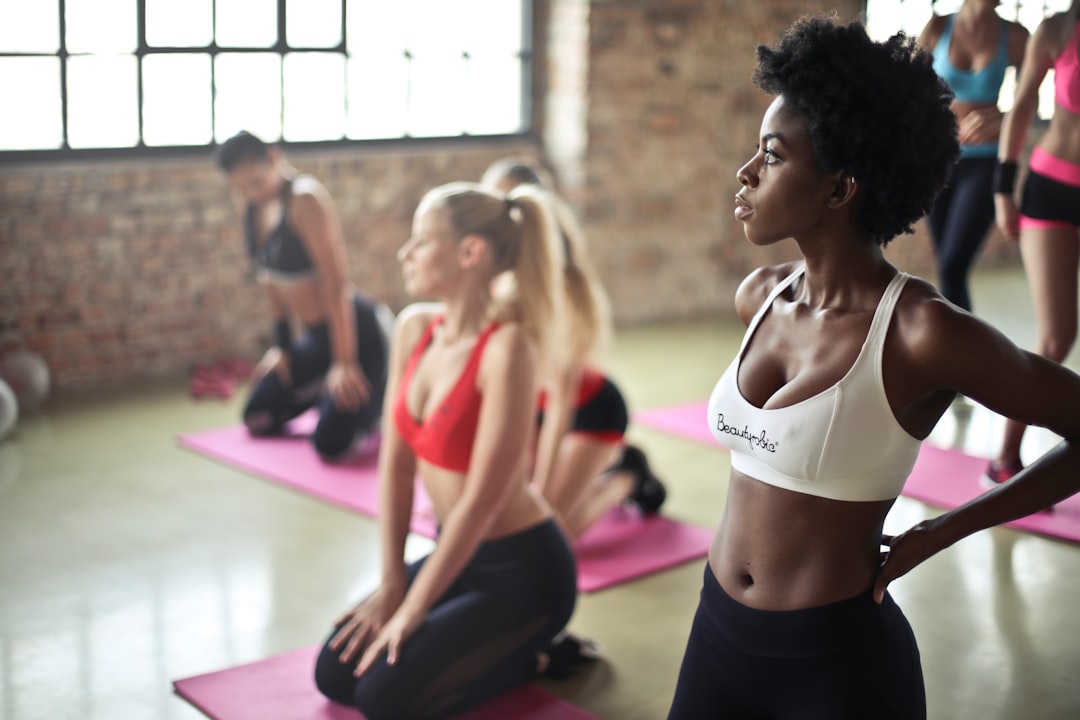
“The systemic conditions that prevent Black women from being able to take proper care of ourselves is one of our nation’s most significant health injustices. And to add insult to our spiritual injury, wellness practices, which can be a useful tool to fight poor mental health, are presented to us through a Eurocentric, capitalist lens, encouraging us to spend money many of us don’t have on products we don’t need to care for ourselves.
I discussed these conditions and the role wellness plays in navigating them with DeJa Love, the CEO of the Black Women’s Wellness Agency. Love’s agency supports Black women who are stressed, burnt out, and overwhelmed by connecting them to Black women wellness providers. This could be a yoga teacher, meditation or life coach, personal trainer, or any non-clinical wellness service that helps manage stress.”
‘Vote, run, win and lead’: Counting Black women’s seats at the table
The 19th/The Amendment, Errin Haines
“In 2014, Higher Heights and the Center for American Women and Politics (CAWP) published the first Black Women in American Politics report. The report’s seventh edition first published in my Wednesday newsletter.
It outlines the record number of Black women running for and winning seats in Congress, state legislatures and mayoral offices, as well as the progress and challenges for Black women running for statewide and federal office. While the report points out that there are still no Black women governors or any currently serving in the U.S. Senate, it also talks about the lessons learned in defeat as Black women organizers, voters and candidates look to the future.”
Tamia Potter Is One of the Only Black Women Neurosurgeons in the U.S.
Teen Vogue, Adaira Landry
“Tamia Potter will soon become the first Black woman neurosurgery resident at Vanderbilt University Medical Center, an institution founded nearly 150 years ago. This achievement is even more remarkable given that, as of 2019, only 0.6% of neurosurgeons in the United States were Black women. Potter is on the brink of breaking a barrier, yet her origin story provides insight into just how much distance a Black woman must travel to succeed.
Potter was born and raised in Crawfordville, Florida, a small town where front doors are rarely locked and neighbors feel like family. And as a child — when she wasn’t outside mud bogging on an ATV or eating fresh food from her grandparent’s farm — she studied the human body.”
A call to cite Black women and gender minorities
Symmetry Magazine, Katrina Miller

“A theoretical astrophysicist at the University of New Hampshire, Prescod-Weinstein spends her time digging into some of the most fundamental mysteries of our universe, including the nature of dark matter and the aftermath of cosmic inflation. She has also been deeply engaged in an understanding of her own place, and that of other marginalized scholars, in studying the cosmos.
Her latest addition to this work is the compilation of every paper ever published by Black women and gender minorities with physics or astronomy PhDs in the United States. Last December, Prescod-Weinstein celebrated the 50th anniversary of the year Willie Hobbs Moore became the first to accomplish this feat by presenting the Cite Black Women+ in Physics and Astronomy Bibliography—a free database intended to change the narrative of whose work gets recognized.”


